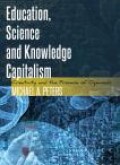 | Peters, Michael A., Education, Science and Knowledge Capitalism: Creativity and the Promise of Openness, (Peter Lang) 2013We live in the age of global science - but not, primarily, in the sense of 'universal knowledge' that has characterized the liberal metanarrative of 'free' science and the 'free society' since its early development in the Enlightenment. Today, an economic logic links science to national economic policy, while globalized multinational science dominates an environment where quality assurance replaces truth as the new regulative ideal. This book examines the nature of educational and science-based capitalism in its cybernetic, knowledge, algorithmic and bioinformational forms before turning to the emergence of the global science system and the promise of openness in the growth of international research collaboration, the development of the global knowledge commons and the rise of the open science economy. Education, Science and Knowledge Capitalism explores the nature of cognitive capitalism, the emerging mode of social production for public education and science and its promise for the democratization of knowledge. |
News
PESA does not sell or take commission from any of the events listed on this website.
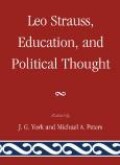 | Peters, Michael A. & J. G. York, Leo Strauss, Education, and Political Thought, (Rowman and Littlefield.) 2011This collection by some of the leading scholars of Strauss' work is the first devoted to Strauss' thought regarding education. It seeks to address his conception of education as it applies to a range of his most important concepts, such as his views on the importance of revelation, his critique of modern democracy, and the importance of modern classical education. This book attempts to maintain traditional scholarly standards in the hope of approaching both Strauss and his work in a dispassionate and objective manner. It contains both biographical as well as scholarly chapters aimed first and foremost at understanding the corpus of Strauss' work and also his significance as an educational thinker. |
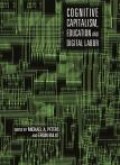 | Peters, M.A. and Bulut, E., Cognitive Capitalism, Education and the Question of Immaterial Labor, (Peter Lang: New York) 2011Cognitive capitalism – sometimes referred to as ‘third capitalism,’ after mercantilism and industrial capitalism – is an increasingly significant theory, given its focus on the socio-economic changes caused by Internet and Web 2.0 technologies that have transformed the mode of production and the nature of labor. The theory of cognitive capitalism has its origins in French and Italian thinkers, particularly Gilles Deleuze and Felix Guattari’sCapitalism and Schizophrenia, Michel Foucault’s work on the birth of biopower and Michael Hardt and Antonio Negri’s Empire and Multitude, as well as the Italian Autonomist Marxist movement that had its origins in the Italian operaismo (workerism) of the 1960s. In this collection, leading international scholars explore the significance of cognitive capitalism for education, especially focusing on the question of digital labor. http://www.amazon.com/Cognitive-Capitalism-Education-Digital-Labor/dp/1433109816 |
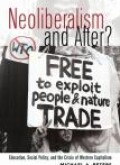 | Peters, M.A., Neoliberalism and After? Education, Social Policy and the Crisis of Capitalism, (Peter Lang) 2011The era that began with the election of the Thatcher and Reagan governments has been dominated by contemporary forms of neoliberalism-based market fundamentalism, globalization as world economic integration and the ideology of «free trade,» and an attack on «big» government and social welfare. This book is a historical and theoretical investigation of contemporary neoliberalism in relation to education policy and its rollback of the Keynesian welfare state. It argues that education is the basis of an open society and is a social welfare right in the merging knowledge economy. Drawing on the theoretical lens of Michel Foucault's work on governmentality understood as a form of radical political economy, the book explores and critiques neoliberalism as the ruling ideological consensus. It also questions whether and to what extent its influence will continue, in the face of the destabilization of markets that followed the financial crisis and the global recession that began in 2007, in the advanced liberal economies of the United States and the European Union. |
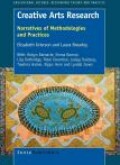 | Grierson, E.M. & Brearley, L, Creative Arts Research: Narratives of Methodologies and Practices, (Sense Publishers: Rotterdam) 2009Creative Arts Research: Narratives of Methodologies and Practices is an innovative set of essays that grows out of active engagement with arts practice, pedagogy and research. The collection presents a selection of arts-based research projects, their methodologies, practices and guiding philosophies, and throws new light on a range of issues that bring artists, designers, and performers into conversation with one another. The collection weaves together theoretical and applied dimensions of creative arts research. Following Martin Heidegger, the lead authors, Elizabeth Grierson and Laura Brearley situate the text through consideration of ways of framing, knowing and being, looking and listening, analysing, being-with, proposing, acting and reflecting, constructing, performing, deconstructing, and learning. Heidegger’s notion of “gathering” and his proposition, “Questioning builds a way ... the way is one of thinking” provides the means to link the different chapters. This wide-ranging metaphoric device allows the authors to emphasise a set of fundamental questions concerning epistemologies, ways of knowing, and ontologies, ways of being, and the relations between the two. Their book opens a conceptual space to recognise the diversity of practices that count as creative arts research. |
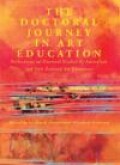 | Grierson, E. & Forrest, D., The Doctoral Journey in Art Education: Reflections on Doctoral Studies by Australian and New Zealand, (Australian Scholarly Publishing: Melbourne) 2010This book presents accounts and reflections by a range of art educators on the experience of undertaking doctoral studies in art education. The individual considerations are significant in that they assist current and potential candidates to appreciate what they are going through – although seemingly unique – has been experienced by others. |
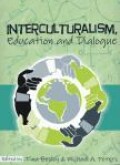 | Besley, Tina & Peters, Michael A., Interculturalism, Education and Dialogue, (Peter Lang) 2012Intercultural dialogue is a concept and discourse that dates back to the 1980s. It is the major means for managing diversity and strengthening democracy within Europe and beyond. It has been adopted by the United Nations, UNESCO and the Council of Europe as the basis for interreligious and interfaith initiatives and has become increasingly associated with a liberal theory of modernity and internationalism that presupposes freedom, democracy, human rights and tolerance. It is now the dominant paradigm for 'cultural policy' and the educational basis for the development of intercultural understanding. Governments have placed their hope in intercultural education as the way to avoid the worst excesses of globalization, especially exclusion and marginalization, and the problems of xenophobia and racism that afflict European societies. Interculturalism, Education and Dialogue is an international collection by renowned scholars who examine the ideological underpinnings of the European model and its global applications. It explores the historical, philosophical and educational dimensions of intercultural dialogue. |
